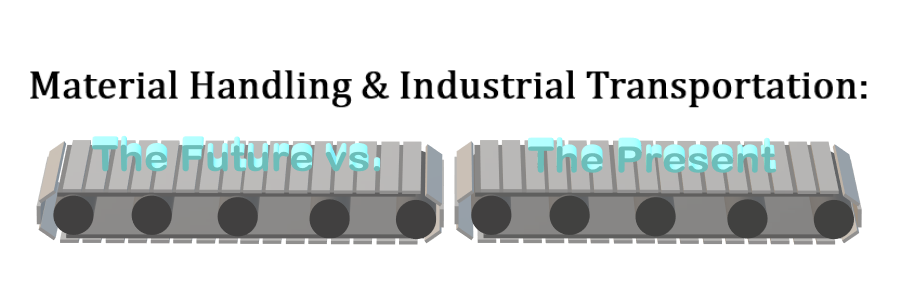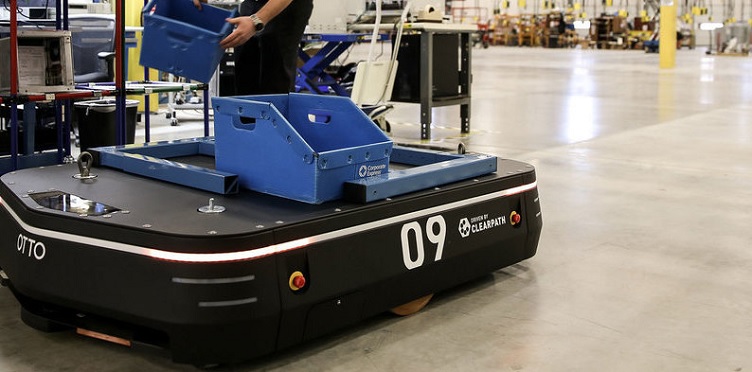Material Handling & Industrial Transportation: The Future vs. The Present
by Black Ink Team

Material handling and industrial transportation are both in for a revolution. Advances in robotics, artificial intelligence, and power production are paving the way for new types of warehouses, new forms of transportation, and more efficient means of providing electricity. These changes will usher in a new age of distribution which will be free of some of the problems affecting it today.
What problems face distribution today, you ask? Unions for material handling jobs are constantly trying to gain more sway, making it extremely difficult for manufacturers and logistics providers to replenish their workforce at affordable costs, and shipping regulations are in a perpetual state of upheaval – drivers aren’t allowed to drive nearly as many hours anymore and their logs must go into an onerous amount of detail. Also, pressures are mounting for transportation companies to heavily reduce their dependence on fossil fuels.

Robots, AI, and solar panels will fix all that. Present day warehouses and fulfillment centers require many skilled workers to drive forklifts and other pieces of machinery, but soon robots will replace them and do the work in half the time. Artificial intelligence will streamline operations even further, and possibly make it so that the footprints of warehouses and fulfillment centers can be reduced so companies will save money on real estate costs. Additionally, driverless trucks will be able to drive all day, all night, so they won’t cause nearly as many delays. Lastly, solar panels will power the buildings as well as the trucks, so environmental concerns will completely disappear.
Unfortunately for some, these changes will mean fewer jobs. But, business will improve and overhead will decrease. People in positions where ‘soft’ skills are important, for instance salespeople, are safe from automation – but that doesn’t mean that automation and software can’t help them. With a selling tool like CRM you can turn your sales team from a present day warehouse – laggard and disorganized – into a warehouse from the future – fast and aerodynamic.
